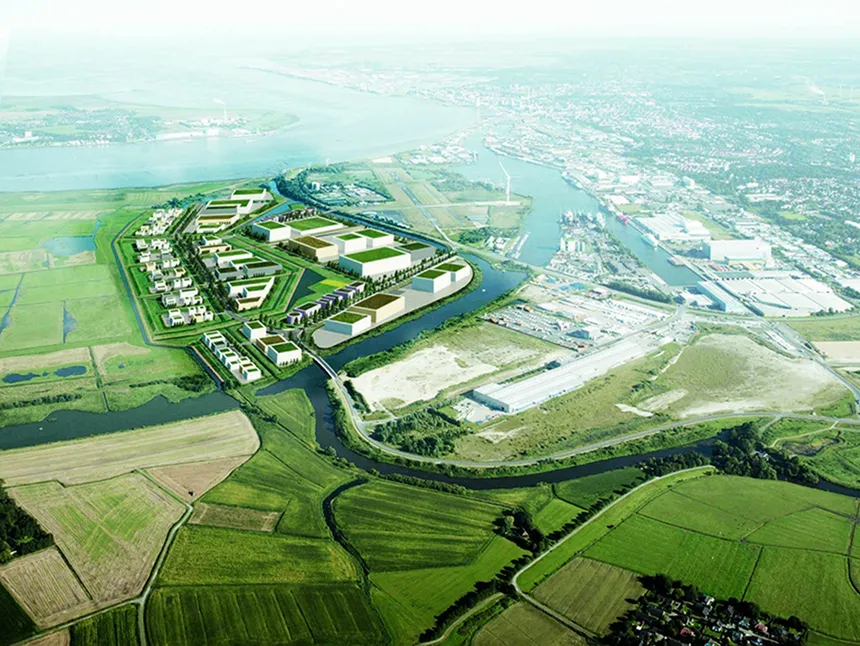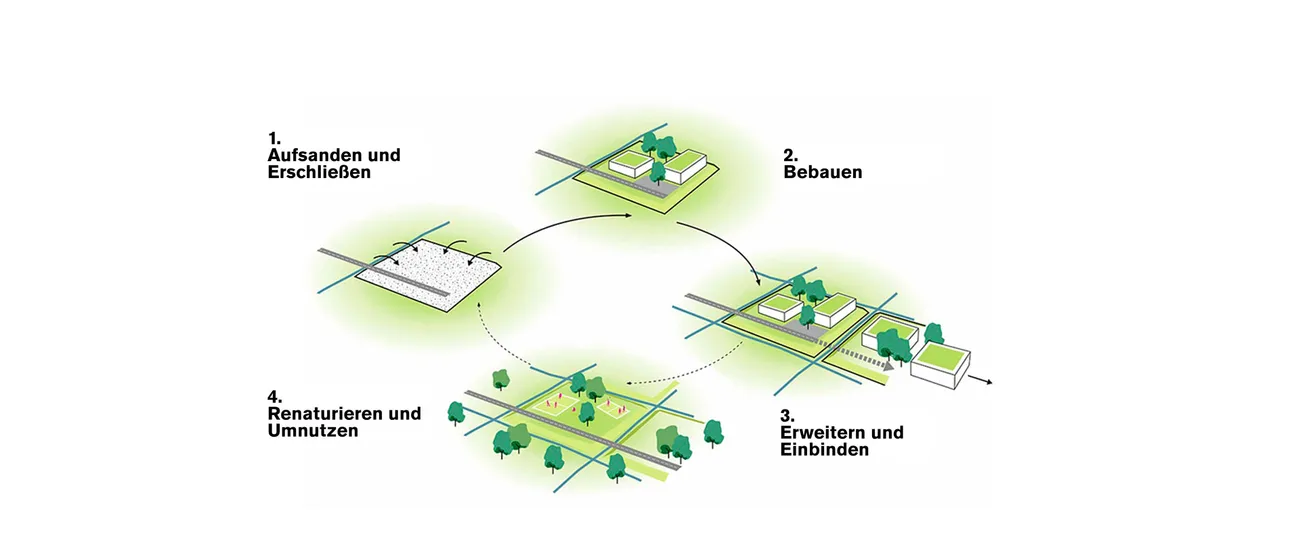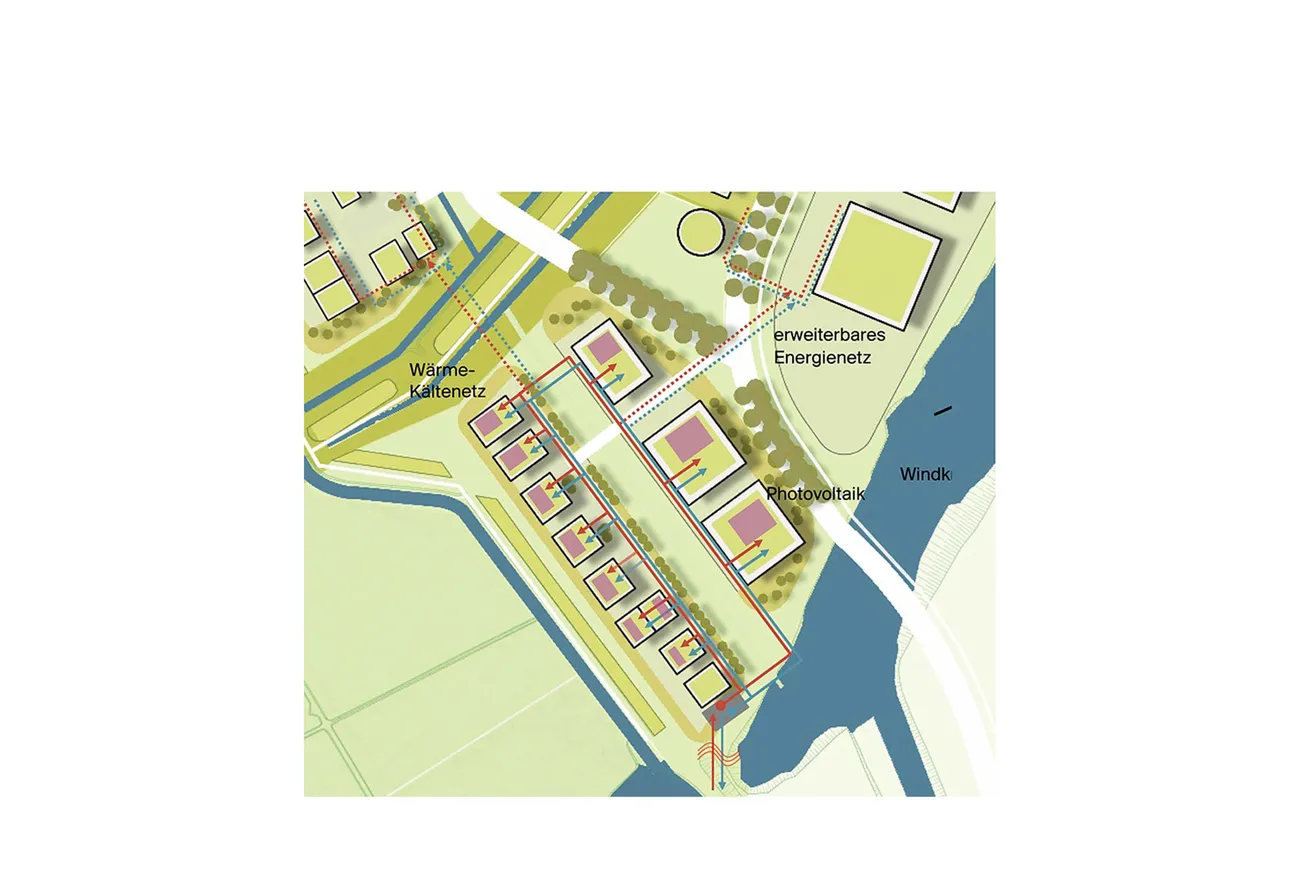Bremerhaven Lunedelta, Bremerhaven, Allemagne

In 2010 Bremerhaven took over an area of 15 km² / 3,707 acres from the neighboring region of Lower Saxony to enlarge the city’s area. The majority was designated as ecological area to compensate for the construction of a container terminal. The rest of the area is intended for commercial use, which should be in line with the neighboring nature reserve.
The city wants to create a "home port" for both young and established companies in Green Economy, i.e. an infrastructure for sustainable economic activity that is to be sustainably developed. The new commercial and industrial area, LUNE DELTA, will be developed under strict sustainability aspects. The DGNB (German Sustainable Building Council) will accompany the ongoing development planning. The delta project will be based on the Cradle to Cradle philosophy and will still have design, ecological and social added value after it is no longer in everyday use.
The topography on-site with plots divided by canals, dike relics as well as water and green spaces, characterizes the design.
Water bodies become places for recreation and new parks and open spaces are created for ecological use as well as for sports and leisure activities. A network of bike and foot paths will provide fast connections to the countryside or the city center.
Based on 100% renewable energies, the supply concept is a pilot project as far as the energy system of the future is concerned. In the neighborhood, wind power will generate "green" hydrogen – the first of its kind in Germany.
The goal is an energy network that will distribute heat and possibly also cooling to the entire neighborhood. Deep geothermal energy is an option for the Founders’ Center, considered the beacon and also the first construction site. This energy could not only supply the Founders’ Center but also become part of the neighborhood supply later.
The name "Commons" is given to common areas with offers to be shared, e.g. in the areas of workplaces, mobility or childcare. The Founders’ Center with focus on the "Green Economy" is also intended to be a nucleus for new forms of joint and networked economic activity. An area management system is planned to direct material flows, to manage the maintenance of the area and to contribute to save resources and costs.
The first construction phase is expected to begin in 2022.





